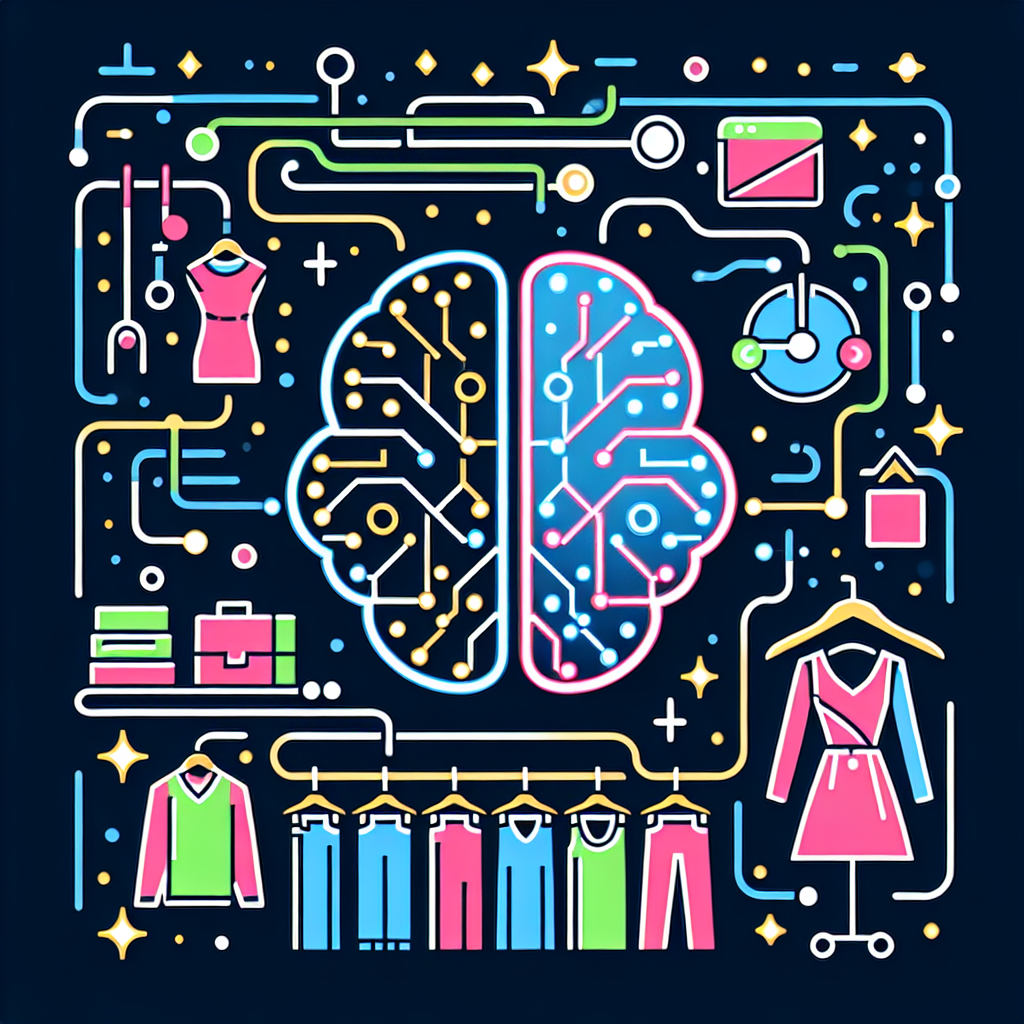In today’s digital age, the fashion industry is constantly evolving to meet the ever-changing needs and demands of consumers. With the rise of e-commerce and social media, shopping for clothes has become easier and more convenient than ever before. However, with so many options available, it can be overwhelming for customers to find the perfect outfit that suits their personal style and preferences.
This is where artificial intelligence (AI) comes into play. AI has revolutionized the way fashion recommendations are made, allowing retailers to personalize their suggestions based on individual customer preferences and behavior. By analyzing data such as past purchases, browsing history, and social media interactions, AI algorithms can provide highly tailored recommendations that are more likely to resonate with the customer.
One of the key benefits of using AI in fashion recommendations is its ability to understand and predict individual preferences. Traditional recommendation systems often rely on basic information such as product popularity or customer ratings to make suggestions. However, AI can take this a step further by analyzing a customer’s unique style preferences, color choices, and even body shape to recommend items that are truly personalized to their tastes.
For example, if a customer has a preference for minimalist and classic styles, AI can suggest pieces from brands known for their timeless designs. On the other hand, if a customer prefers bold and colorful prints, AI can recommend items from brands that specialize in vibrant patterns and textures. By taking into account these personal preferences, AI can help customers discover new brands and styles that they may not have considered before.
Another advantage of using AI in fashion recommendations is its ability to adapt and learn over time. As customers interact with the system and provide feedback on their purchases, AI algorithms can continuously refine their recommendations to better match the customer’s evolving preferences. This means that the more a customer uses the system, the more accurate and personalized their recommendations will become.
In addition to personalizing fashion recommendations, AI can also help retailers improve their overall customer experience. By analyzing customer data and behavior, AI can identify trends and patterns that can be used to optimize product offerings, pricing strategies, and marketing campaigns. For example, AI can help retailers determine which products are most popular among customers in a particular demographic, allowing them to tailor their inventory to better meet demand.
Furthermore, AI can also assist in improving the online shopping experience by providing virtual styling services and personalized outfit suggestions. By using AI-powered virtual stylists, customers can receive recommendations on how to style a particular item or put together a complete outfit based on their personal preferences. This can help customers make more confident purchasing decisions and reduce the likelihood of returns.
Overall, the role of AI in personalizing fashion recommendations is becoming increasingly important in an industry that is constantly evolving and highly competitive. By harnessing the power of AI, retailers can better understand their customers, anticipate their needs, and provide them with a more personalized shopping experience.
FAQs:
1. How does AI personalize fashion recommendations?
AI personalizes fashion recommendations by analyzing customer data such as past purchases, browsing history, and social media interactions to understand individual preferences and behavior. This information is used to provide tailored recommendations that are more likely to resonate with the customer’s personal style.
2. Can AI predict future fashion trends?
While AI can analyze data and identify patterns to predict future trends, it is not foolproof. Fashion trends can be influenced by a variety of factors such as cultural movements, celebrity endorsements, and global events. However, AI can help retailers stay ahead of the curve by providing insights into customer preferences and market trends.
3. How can retailers implement AI in their fashion recommendations?
Retailers can implement AI in their fashion recommendations by partnering with technology providers that specialize in AI-powered solutions. These providers can help retailers integrate AI algorithms into their e-commerce platforms to personalize recommendations, improve customer experience, and optimize their product offerings.
4. Is AI in fashion recommendations a threat to personal style?
While AI can help customers discover new brands and styles that they may not have considered before, it is ultimately up to the individual to decide what suits their personal style. AI should be seen as a tool to enhance the shopping experience and provide inspiration, rather than dictate what someone should wear.
5. What are the limitations of AI in fashion recommendations?
AI in fashion recommendations is not without its limitations. For example, AI algorithms may struggle to accurately interpret individual style preferences and may not always take into account cultural or personal influences. Additionally, AI recommendations are based on historical data, which means they may not always reflect current trends or emerging styles.

